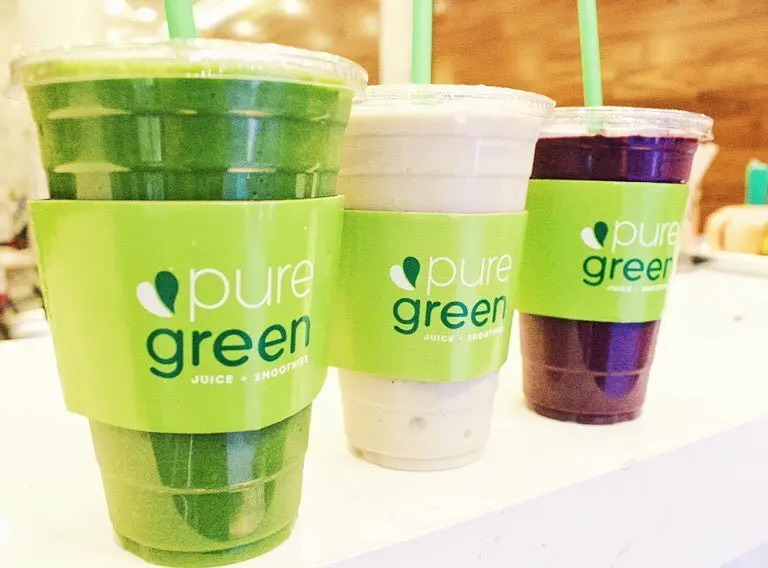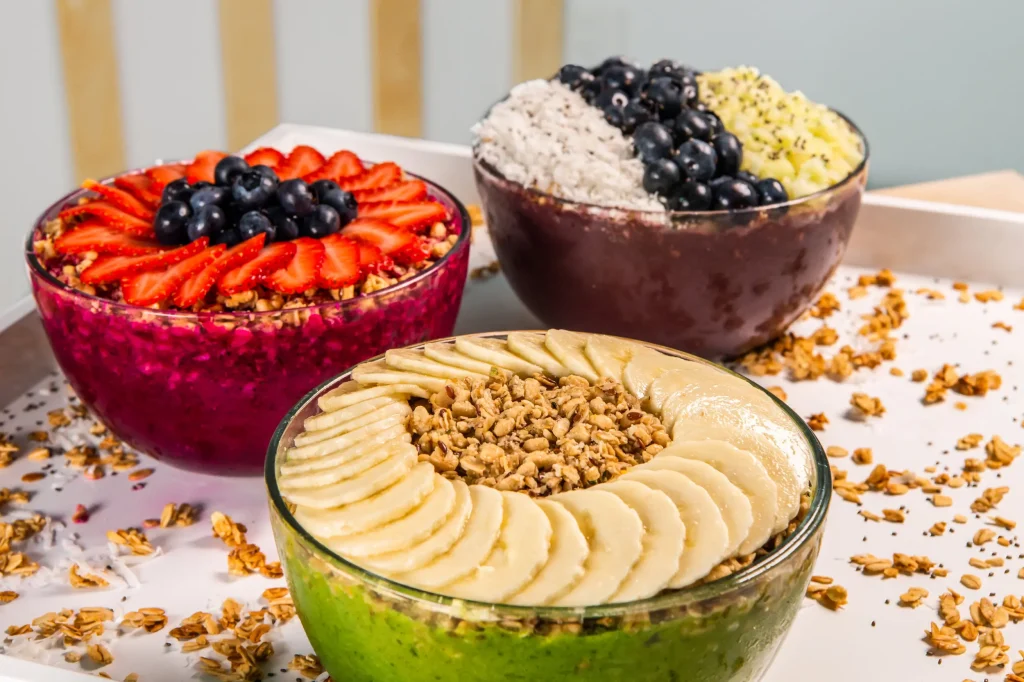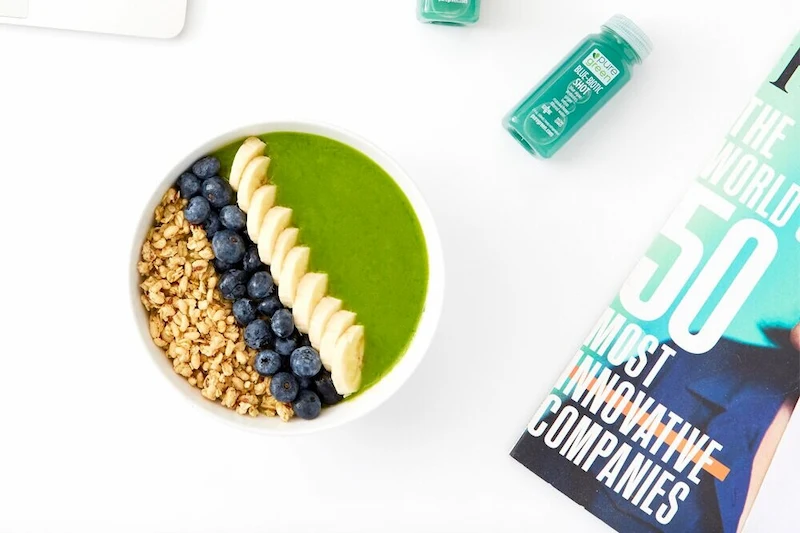Essential Strategies to Boost Your Immune System for Better Health
As the days grow colder and the end of the year is closing in, we all know the holiday season is just around the corner! But, just to rain on the thanksgiving parade, all the fun comes hand in hand with the inevitable cold and flu season. In addition, the recent Covid-19 situation has made us all reconsider just how important supporting our immune systems is.
Don’t have time to catch a cold? Looking for easy ways to boost your immune system?
We’re with you there! That’s why we’ve created this guide showing some top ways you can give your immune defenses a boost. From the importance of sleep to sunshine, read on to find out everything you need to know to help your immune system take care of you.
IMPROVE THE QUALITY OF YOUR SLEEP
We all know the importance of getting a good night’s sleep. And we all know how missing out on some shut-eye can affect our mood the next day! But, can not getting enough sleep make you sick?
The answer is, yes. The Center for Disease Control and Prevention (CDC) has proven just how crucial sleep is for supporting your immune system – and the results might just surprise you. It turns out that sleep not only protects against infections and disease, but it significantly reduces recovery time, that is, how long it takes you to start getting better.
How this works is kind of complicated, but restricting sleep decreases how many antibodies (infection fighters) your body can produce – by more than 50%! In the long term, not getting enough of a good night’s rest also makes your body produce something called inflammatory cytokines. This substance has been linked to chronic diseases like cardiovascular and metabolic diseases.
So just how much sleep do I need? Well, like all things remember quality is just as important as quantity. For adults, scientists recommend getting about 7-9 hours of good quality sleep every night.
Easier said than done, right? If you struggle to get 40 winks, try some of these tips tonight!
- Avoid eating too late. Too much food late at night stimulates your digestive system and stops you from getting a good night’s rest. Try not to eat at least two hours before going to bed. Try a light dinner that is easier to digest, like a soup or smoothie.
- Avoid caffeine. Caffeine isn’t just found in coffee – teas, candy bars, and some medications can all be hidden caffeine carriers.
- Keep your phone out of reach. Tempted by late-night scrolling? Leave your phone on a table away from your bed, to avoid the need to check up on your feed. This also helps you wake up as you’ll need to get up to turn off your alarm in the morning!
- Turn off the blue light. Blue lights, like those emitted by your phone, completely throw off circadian rhythm. Most phones these days have a turn off the blue light function, which will help you fall asleep faster,
- Get enough exercise. Physical activity during the day has great effects on the quality of sleep – just don’t work out too close to bedtime! This can have the opposite effect.
- Try a melatonin supplement. This hormone is associated with the sleep-wake cycle and helps regulate your sleep patterns. You may also want to try foods naturally rich in melatonin like milk, cherries, bananas, plums, and grapes.
- Set a schedule – and stick to it! Having a sleep schedule may just be the most important thing you can do. We’ve all experienced waking up on Saturday morning at the same time during the week, without having set an alarm. Your body’s internal clock is amazing at knowing when to knock off and get up. Committing to a schedule will commit your body as well.
- Create a great sleep space. Make sure your mattress and pillows are comfortable and supportive. Remember, pillows need to be changed every one to two years.
Try some aromatherapy. Lavender has long been associated with a good night’s sleep. While scented candles may not be the best idea, in this case, try washing your linen with a few drops of lavender oil to get the same effect.
Reduce Your Screen Time


Well, too much screen time is having spiraling effects on both physical and mental health. Evidence-based research has linked too much time in front of screens to many health-related problems. These include:
- Obesity
- Sleep disturbances
- Neck and back pain
- Eyestrain
- Anxiety and depression
With your body struggling to cope with all these additional stressors, it’s a short step to see how your immune system will be negatively affected as well.
As more and more of us have begun to work digitally, and live more of our lives on social media platforms, awareness of the dangers of screen time is becoming ever increasingly important. Screens have become a practically indispensable part of modern life – but that doesn’t mean your physical and immune health has to suffer. Even just reducing your time spent in front of screens can have wide-ranging benefits on your health. Here are some tips you might like to try.
Make Your Bedroom a No-screen Zone
Do you “go to bed” early every night… just to while away the hours endlessly scrolling between Facebook and Instagram? It’s a vicious vacuum that eats away at your productive sleep time, and leaves you feeling worn out the next day… even though you went to sleep early!
Ban the screen from your bedroom, or keep devices charging out of reach from your bed. Think you won’t be able to sleep? Try it – you’ll find you end up getting more hours of productive sleep over the night.
Log Out of Social Media Accounts
Bored? Waiting in a queue? 15-minute work break? These are the times a lot of us will reach for our phones and scroll away. If you are looking to cut down on wasteful screen time, try logging out of your social media accounts when you aren’t using them. Chances are, even just the little bit of effort it takes to log on will make you reconsider how much you want to look at the same old content.
Leave Your Phone at Home
Turn on Grayscale
This is a great trick. Both android and iPhones have grayscale features you can discover in your smartphone’s settings. Screens kind of work like casinos – with all those flashing lights and bright imagery to reel you in. Remove this stimulus by turning on the grayscale function. You’ll be more likely to disconnect from your phone.
MOVE YOUR BODY
Physical activity is one of the pillars of health. We all know the physical and mental benefits, but did you know that your daily dose of exercise helps keep away colds and the flu?
When we exercise, our bodies release some things called cytokines. These are tiny little proteins that’s job is pretty much to tell the immune system to start working. Lymphocytes – white blood cells, that fight against invading bacteria – also begin to circulate through the body.
In addition, your body becomes better at calling over these cells to fight against the virus – something called cell recruitment.
What it comes down to is your body is better able to find, fight against, and defeat foreign viruses – things like the common cold or the flu.
If you’re serious about improving your immune system, getting in the recommended amount of exercise is a must. But – like all good things – don’t overdo it. Too much vigorous exercise will send your body into overdrive and have the opposite effect on your immune system.
Most doctors recommended moderate level physical activity, at least a couple of times a week.
So what is moderate level physical activity? Well, this includes things like running and heading to the gym. Not a fan? No worries! Check out these other ways you can get your body moving.
Heavier Household Chores
Remember, exercise doesn’t have to be a chore… but it can help get yours done! Think things like vacuuming, washing windows, and mowing the lawn – tick two things off your to-do list!
Dancing
Riding a Bike or Rollerblading
Dust off those old skates and take a spin around the park. Chances are you forgot just how fun it is!
Go for a Walk with a Friend
Next time you catch up with a friend, make a plan to stroll through the streets rather than just sitting down. Moderately-paced walking is actually a great workout and chance to catch up with the latest. You might also like using this time to acquaint yourself with some of the hottest podcasts or listen to your latest audiobook.
Group Games
GET SOME VITAMIN D
What even is Vitamin D? This little understood ‘vitamin’ is not even a true vitamin at all. It’s a hormone that is naturally produced by the body. So where does it come from, and am I getting enough?
Most of the Vitamin D our body needs comes indirectly from the sun. That’s right – exposure to sunlight is actually what stimulates Vitamin D production in the skin. So if you are catching enough rays the chances are your body is naturally producing enough Vitamin D on its own. But, that isn’t always the case.
Some people don’t naturally get enough of the sunshine vitamin. Some groups are especially vulnerable.
People Who Live Far from the Equator
Older Adults
With the older members of our population, it’s a double whammy. As we age our bodies become less adept at making Vitamin D, so we need to increase our sun exposure… but research shows that older adults spend less time outside in the sun compared to the younger generation.
Think you aren’t getting enough Vitamin D? Well, luckily it can also be consumed in foods like salmon and egg yolks. Mushrooms are a plant-based option, or you may like to try adding a supplement to your next yogurt or smoothie.
What are the Benefits of Vitamin D, anyway?
Well, Vitamin D has far-reaching benefits and can aid your body in the fight against many diseases and problems. Some of these include:
- Osteoporosis. Around 10 million Americans suffer from osteoporosis, with a further 44 million classified as being at risk.
- Rickets. This debilitating childhood disease finally found treatment when Vitamin D was discovered in 1930.
- Cancer. Vitamin D deficiency has been linked to increased incidence of certain types of cancer, especially prostate cancer.
- Pregnancy complications. Those lacking in Vitamin D are also much more vulnerable to a range of pregnancy-related complications.
- Common viruses. Vitamin D stimulates the production of essential white blood cells to help your body protect itself from nasty invaders.
Are you Getting Enough Vitamin D for Your Health?
Think you might be Vitamin D deficient? If your sun exposure has been limited lately, for whatever reason, doctors recommend eating foods and cereals fortified with Vitamin D, as well as natural sources like oily fish and eggs, as part of a balanced diet.
Doctors also may recommend a supplement containing 10 micrograms of Vitamin D for adults, especially those in vulnerable groups.
Just remember that while Vitamin D is crucial for your health, too much sun exposure can lead to sunburns, premature aging, and skin cancer. During extreme heat and for extended periods skin should be covered and sunscreen applied to stay protected.
FUEL YOUR BODY
Thomas Edison said it best: “The doctor of the future will no longer treat the human frame with drugs, but rather will cure and prevent disease with nutrition.”
Here at Pure Green, this is a philosophy we can get behind. No system in our body can function without adequate and healthy nutrition – let alone our body’s immune defenses.
How does Nutrition Affect the Immune System?
Poor nutrition – think a diet rich in saturated fats, red meats, and processed food only negatively impacts the body’s immune defense. These types of foods lead to inflammation, which gets in the way of normal white blood cell functions. Studies show that sugar gets in the way of normal immune functioning as well.
On the other hand, a diet rich in fresh fruits and raw vegetables has been shown to boost the immune system’s functions and help defend our bodies against viruses and bacteria.
These fresh foods contain a bunch of essential Vitamins, minerals, micro and macronutrients essential for immunity.
Some of these include:
- Vitamin A – Typically found in orange-colored fruits and veg, like mangoes and carrots.
- Vitamin C – Think ‘C’ for ‘Citrus’. Strong sources are lemons, oranges, and grapefruits.
- Vitamin E – Found in green, leafy veg – kale, spinach, and chard.
- Folate – Available in a variety of plant sources, like avocados, apples, and papaya.
- Iron – A variety of seeds, nuts, and dark green veggies like kale and spinach are strong sources of iron.
- Zinc – Coconut and chia seeds are plant sources of zinc.
So, how can you be sure you are getting enough of these essential vitamins and minerals every day? Well, you’ve heard it before – the most important point is making sure you are eating a balanced and healthy diet. Easier said than done, right? Sometimes it feels like no matter how healthy we try to live we just can’t find the fuel to give our body what it needs.
If you are struggling with your nutrition you may like to try a supplement. There are specially formulated supplements specifically designed to target immune functioning. Looking for a more natural solution? You may like to try supplementing your diet by making a healthy juice or smoothie a part of your daily routine. Read on to find out how.
With Health Juice
Healthy juice has long been lauded for its immune-boosting functions. When you drink juice, especially quality cold–pressed juice you are drinking concentrated amounts of vitamins, minerals, and nutrients. Here, we aren’t talking about synthetic fruit-flavored drinks, but fresh juices made from real ingredients. Healthy juices can help you in a couple of ways – as a daily defense or for when you’re feeling especially under the weather.
Daily Defence
By incorporating a cold–pressed juice into your daily routine, you’ll be sure you are getting in enough of those essential vitamins and minerals that you need to support a healthy immune system. Try a healthy juice made with a lot of different fruits and vegetables to ensure you’re getting in all the spectrum of nutrients necessary.
Cold Buster
Have a cold you just can’t kick? We all have our remedies – from tea with honey to chicken soup. What works for us is vitamin-packed health juice. Next time you are under the weather why don’t you try a cold-pressed juice or concentrated shot?
These little shots are like juices but have added superfoods to maximize vitamin intake – necessary to overcome that seemingly never-ending flu. Try a specially formulated juice shot like our Immunity Shot, made with ginger and lemon to saturate your body with cold-fighting goodness.
FUEL YOUR BODY
Supplements or Superfood Smoothies? For us, it’s pretty clear which is the better (and tastier!) choice. If you want to make more natural choices, it’s pretty clear how adding a smoothie to your daily routine can help you live a healthier life.
Packing in all those essential nutrients to support your immune system becomes a lot more convenient when you blend them up and take them to-go.
Try switching up your morning routine – ditch the bowl of cereal and pick up a smoothie instead. This is a great way to immediately increase your fruit and veggie intake, positively starting your morning and ensuring your body has what it takes to protect it against the day’s stressors.
Forget the afternoon coffee – try a superfood smoothie. With more and more juice and smoothie bars opening up around the country it’s getting easier and easier to pack in those essential vitamins into your lunchtime break. Notice how much more alert and healthy you feel after healthy foods compared to caffeine and added sugars.
CONCLUSION
Remember – your immune system is what looks after you. Looking after it has never been more important. Just some simple steps like reducing screen time, becoming more active, getting enough sleep, and fueling your body with quality, healthy choices are imperative to keep your immune defenses functioning at their best.
It’s your turn to take care of your immune system. Try these tips this cold and flu season and start supporting yourself now!






